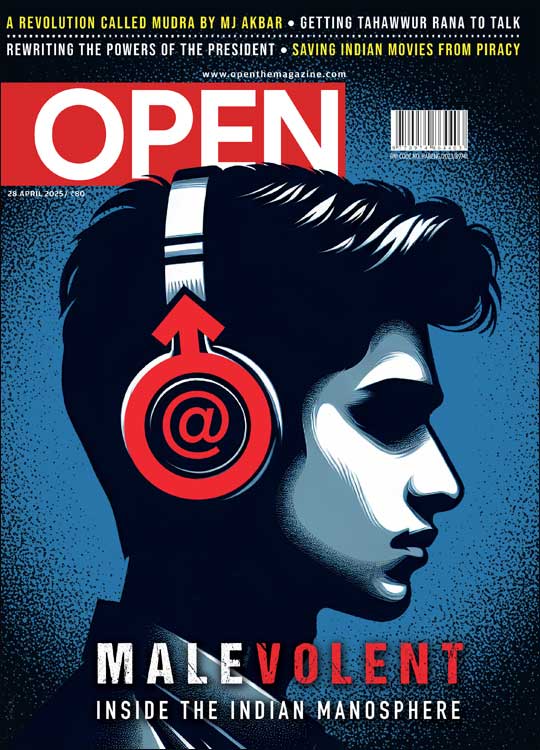Decolonisation of the Mind
A question for Lord Macaulay’s children
 Priyamvada Gopal
Priyamvada Gopal
 Priyamvada Gopal
|
04 Apr, 2014
Priyamvada Gopal
|
04 Apr, 2014
/wp-content/uploads/2015/11/decolonisation.jpg)
A question for Lord Macaulay’s children
Mirror, mirror on the wall, who is the least independent of us all? Or, to put it in more familiar terms, Macaulay ke asli aulad kaun hain (Who are Macaulay’s real children)? The question of whose minds are still colonised is a provocative one but one worth asking right now. If each election poses the question of what sort of polity we want to be living in nearly 70 years after India’s independence from Britain, it’s time to assess which of the political options before us proffers a genuinely freestanding, decolonised, expansive, unique and compelling vision of the future, one that is not parasitic on the legacies of 200 years of colonial rule. From the decriminalisation of homosexuality to sedition charges to the suppression of highly-regarded scholarship, questions have been raised about the extent to which the Indian Penal Code relies on anachronistic Victorian values and legislation. Charges of suffering from a ‘colonised consciousness’ were levelled against those who came to the defence of Wendy Doniger’s The Hindus: An Alternative History. Whatever our position on this, perhaps we can agree that it’s worth taking seriously the question of the extent to which both our minds and our politics remain in thrall to colonialism. Who, then, might give us an India that is truly decolonised and ready to transform itself for the better?
The party which lays loudest claim to having a distinctive vision of India is the one slated to win the single largest number of Lok Sabha seats, whether or not it wins a majority or forms the next government. The BJP and its Sangh Parivar allies have made careers out of accusing various pet antagonists—from secularists and socialists to feminists, human rights campaigners and environmentalists— of being beholden to pernicious Western influences. They claim, by contrast, to stand for original Indic values that best suit an Indian ethos. But is this true? The heady cocktail the BJP offers is a combination of hyper- nationalism and hyper-capitalism (‘development’) which now merge in the form of Narendra Modi, who has been turned into an archetypal Indian hero, complete with Amar Chitra Katha-style comic book. The trouble, of course, is that both neoliberalism and nationalism premised on the dominance of the majority religion, however ‘tolerant’ of minorities it claims to be, are part of the legacy and afterlife of the British Empire.
The Raj, which prided itself on incorporating India into its booming capitalist growth story, began with the East India Company, described by economist Nick Robins as the world’s first multinational corporation, running riot across the land. While there was much indigenous resistance to British rule, the idea of the modern nation-state was certainly derived from nineteenth-century European ideas where the ‘nation’ was imagined as based on single homogeneous categories like religion and ethnicity. This was totally unsuited to the plural Indian context which, even Macaulay admitted, was one ‘which resembles no other’. It’s no accident that the idea that Hindus and Muslims constituted two separate nations emerged out of the colonial experience, as did the glorification of India’s supposedly purely Hindu past.
The British Empire also bequeathed to India the apparatus of a strong centralised state that could crush challenges. The BJP’s vision of a militarised, nuclear- capable state run largely by autocratic Hindu caste elites would have made Macaulay proud. An English chauvinist to the core, he advocated strong government and a uniform repressive code of laws, the Indian Penal Code, which came to include, of course, Section 124A (sedition), Section 295A, which forbade outraging the religious sensibilities of His Majesty’s subjects, and Section 377, which outlaws homosexuality; the BJP is the only major party that has explicitly declared its commitment to upholding the latter. It’s also no surprise that the Sangh Parivar ideal of a Hindu Rashtra finds some of its most shrill adherents—not to mention substantial funding—from Britain and US-based Hindu NRIs and PIOs: the jingoistic BJP view of India is one which they can use to assuage their sense of being treated as second- class citizens who come from a less developed culture. Aggressive nationalism based on a uniform ethos combined with unbridled corporate growth is a language the West invented. In speaking it so fluently, the BJP would undoubtedly emerge as Macaulay’s favourite latter- day son.
What of the Congress, which nervously awaits a tryst with voters understandably fed up with long years of cronyism, dynastic politics, insiderism, incompetence and lack of vision? Its claim to an Indian vision draws on the weight of history. Its ancestor, the Indian National Congress, began as a genteel campaigning lobby for loyal ‘upper-caste’ Indians who wanted more say in governance. Under Gandhi, it became an all-India body, which was periodically able to mobilise the masses including the rural poor and oppressed castes against British rule. Against the wishes of many, including Gandhi, Nehru and his adherents turned it from a freedom-fighting organisation to an electoral party. After Independence, working in a diverse coalition, the Congress participated in creating a blueprint for India which was necessarily attentive to different social and economic pressures including the need for an inclusive polity that would not privilege one religion over another.
Under the supervision of Dr Ambedkar, the Indian Constitution emerged as a fairly enlightened document, underscoring the secularism that the Congress party continues to tout as its unique selling point. The trouble, of course, is that in addition to being perfectly capable of playing communal forces against each other when it suits it—recall its shocking role in the anti-Sikh pogroms on 1984—the Congress too has never broken from the British colonial model of a strongly centralised state in which a linguistic and religious majority, and caste elites, call most of the shots despite some managed pluralism. This, by the way, is a model that is being challenged in the United Kingdom itself as Scotland prepares to vote on whether to secede from the Union. Rather than addressing the root of problems, the Congress is also culpable of having used some of the worst inheritances from the colonial state, including brutal and excessive military force against Indian citizens, to crush insurgency whether secessionist movements or in the form, most recently, of Operation Green Hunt. The indefensible Armed Forces Special Powers Act, against which the remarkable Irom Sharmila has hunger-struck for years, is also directly derived from British rule.
Having failed to marry capitalism to socialism, despite some necessary measures which kept the poor in mind, the Congress under Rajiv Gandhi ‘liberalised’ India by opening the way to the full incorporation of India into US-led global capitalism, adopting the ‘growth’ mantra that its first generation of leaders had rightly been wary of. Liberalisation has made for a prosperous middle-class but despite populist rhetoric and commitment to a measure of social welfare, the Congress has ultimately failed to alleviate deep-rooted problems of distribution, exploitation of labour, poverty and hunger. Largely maintaining hierarchies of wealth, caste and power, the party repeatedly risks reducing important caste and communal questions to vote-bank politics. With questionable compromises followed by full capitulation to an economic model first propagated by the West, its story is of missed opportunities to craft something visionary and different in the wake of Independence.
The constitutional Left parties did have a vision of social justice, made important contributions to India’s freedom struggle and achieved much in some areas, not least land reforms and mass literacy. They have failed, however, to emerge as a national force with wide grassroots support. The CPM, while rhetorically condemning Western imperialism, did not distance itself from the toxic legacies of Stalinism, hardly less repellent than imperialism. While it has acted to check some of the privatisation excesses of its political partners and stood behind anti-communalism and the decriminalisation of homosexuality, it has also to answer for its own shameful exercise of brutal state power at Nandigram and Singur, where much like the BJP in Gujarat and Odisha and the Congress in Maharashtra, it has enabled Special Economic Zones to be established at the cost of agricultural land, kowtowing to corporate conglomerates like the Tata Group. SEZs are one example of how India is being recolonised by multinationals using standard colonial techniques including displacing populations, suspending constitutionally guaranteed labour protections and operating outside of state law. It should come as no surprise that the land grabs routinely undertaken by large corporations were facilitated by colonial-style legislation in the form of the Land Acquisition Act. Combine this with AFSPA and actual colonial- era statutes such as Section 295 and Section 377 and what we have is a nation that is in a state of arrested, though not yet failed, decolonisation.
We come finally to the Aam Aadmi Party, a new force with demonstrable appeal to an electorate thirsting for a meaningful alternative. Does the AAP offer a democratically decolonised vision for the future, one which takes India’s diverse religious and cultural traditions into account but also enacts much-needed transformations in our economic landscape, eliminating widespread malnutrition and yawning inequalities? That remains to be seen though the fact that the party has been joined by respected campaigners for economic and environmental justice like Medha Patkar, Rachna Dhingra and Soni Sori signals interesting possibilities. However, by emphasising the ‘crony’ element of capitalism rather than systemic inequalities that have everything to do with how corporations make ‘legitimate’ money, the AAP has so far echoed a line beloved in the West: that theirs is a ‘clean’ way of doing capitalism while Asia and Africa are ‘corrupt’. As many in the West now realise, it is perfectly possible for corporations and wealthy oligarchs to siphon off huge profits at the expense of ordinary people through technically lawful means including the removal of labour protections, weakened environmental regulations, displacement, cheap and inadequately scrutinised loans, government subsidies, tax shelters or loopholes as well as keeping wages low or extracting natural resources cheaply. Privatisation of public utilities and resources, including roads and ports, a defining feature of Modi’s Gujarat, is in itself corrupt, a form of theft. ‘By good government we may educate our subjects into a capacity for better government,’ wrote Macaulay, but post-colonial governance doesn’t just have to be ‘cleaned up’: it needs to be radically overhauled and democratised to throw its weight behind the disenfranchised. To not become just one more variation on the neoliberal theme of deregulation and good governance, aam shouldn’t just apply to individuals but should ensure the public good by stripping unfettered capitalism of its khas status. And while we’re talking about decolonisation, let’s hope that the nasty anti-African racism of some AAP leaders in Delhi doesn’t resurface. Let’s also agree that ‘good governance’ should mean that any leader or official under whose watch any kind of carnage takes place is automatically disqualified from holding office.
How then, to use a term coined by Nigerian scholar Biodun Jeyifo, do we undo India’s ‘arrested decolonisation,’ yet to be fully envisioned by any of the major contenders for national power? It won’t come from cynical appeals to religious pride and fomenting hatred for minorities while lying prostrate before the gods of big business, allowing them to ride roughshod over the health and well-being of the vast majority of this country while ‘developing’ the bank balances of the super-rich and the middle-classes. Without necessarily emulating them, a more fully decolonised vision can draw inspiration from the manifold instances in Indian history where individuals and groups have challenged the concentration of power, wealth and privilege in a few hands, whether that power is derived from caste, kingship, landlordism or religion. Relatively recent history gives us, to name but a few, kisan sabhas, Ambedkar’s Independent Labour Party, JP Narayan’s call for sampurna kranti, the Self-Respect Movement, the Dalit Panthers, a recharged longstanding women’s movement, the Narmada Bachao Andolan, the National Trade Union Initiative and Adivasi resistance to dispossession. Now is a good time to reflect on the colonial racism which infects mainstream India’s view of Adivasis as primitive savages who can be deprived of land and livelihood with impunity. Dalit and Adivasi perspectives should not be footnotes to envisioning a decolonised India free of hunger, disease, environmental degradation and deprivation: they should be central to it. Only then will we have a truly independent country with no family resemblances to the late Lord Macaulay’s vision.

/wp-content/uploads/2025/04/Cover-Manosphere.jpg)











More Columns
The Pontiff Who Led by Example Sudeep Paul
Find the Best App for Personal Loans Open Avenues
Truth or Lies? Nandini Nair